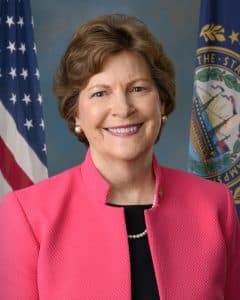Legislation hopes to address shortage of school mental health providers

Sen. Jeanne Shaheen (D-NH) is leading the introduction of the Mental Health Excellence in Schools Act, bipartisan legislation that if passed will address the shortage of mental health providers in schools by authorizing the Department of Education to partner with higher education institutions to help cover students’ costs at relevant graduate programs.
“Throughout the pandemic, New Hampshire families and schools have voiced serious concerns about students’ mental health and the impact COVID-19 had on our kids,” Shaheen said. “Those conversations, coupled with my visit to Dover High School earlier this year, helped inspire my decision to introduce this bipartisan legislation to increase the availability of the mental health professionals tha...
Want to keep reading this article from New England Psychologist?
Login below or subscribe today to support independent journalism!
